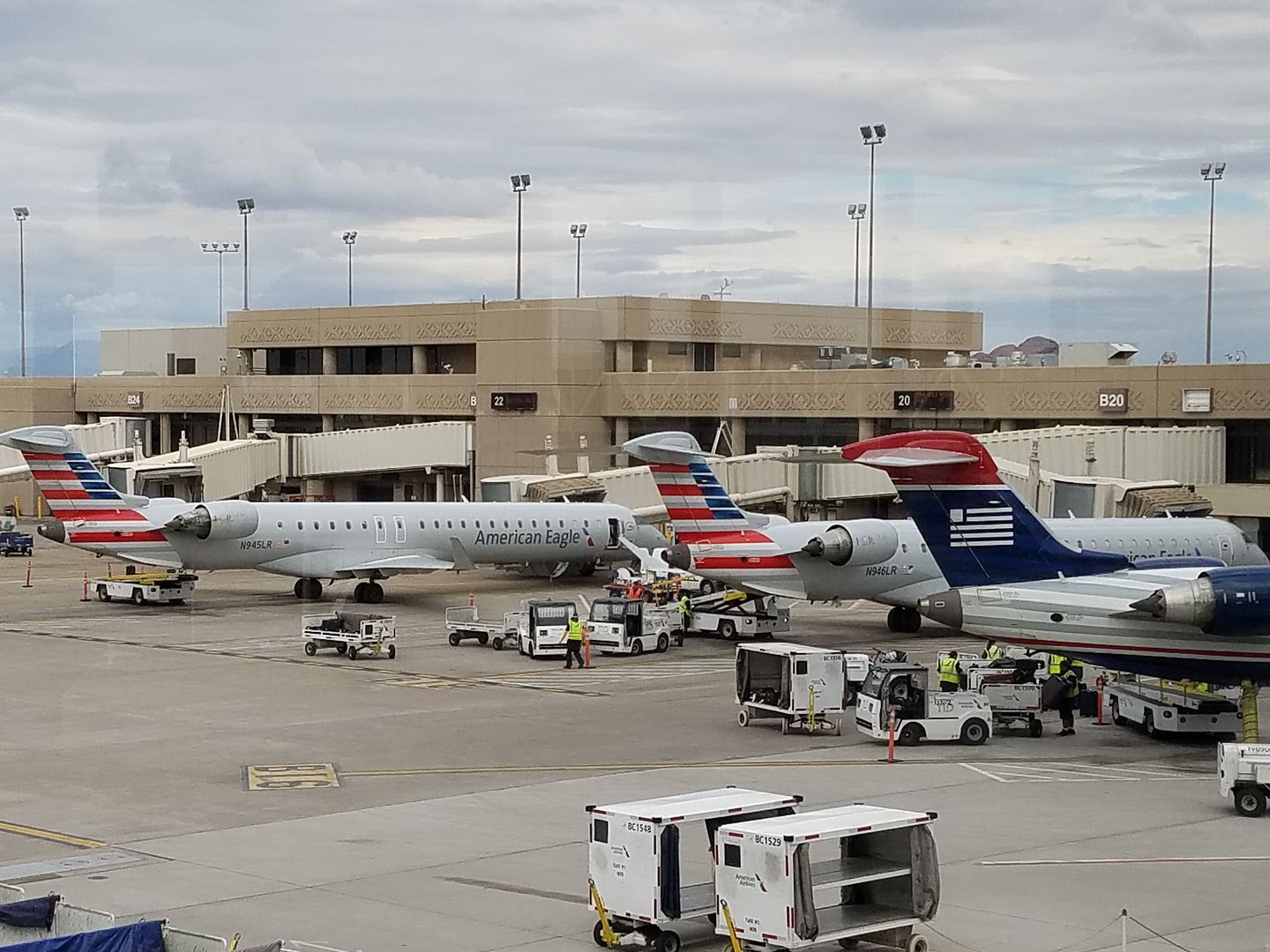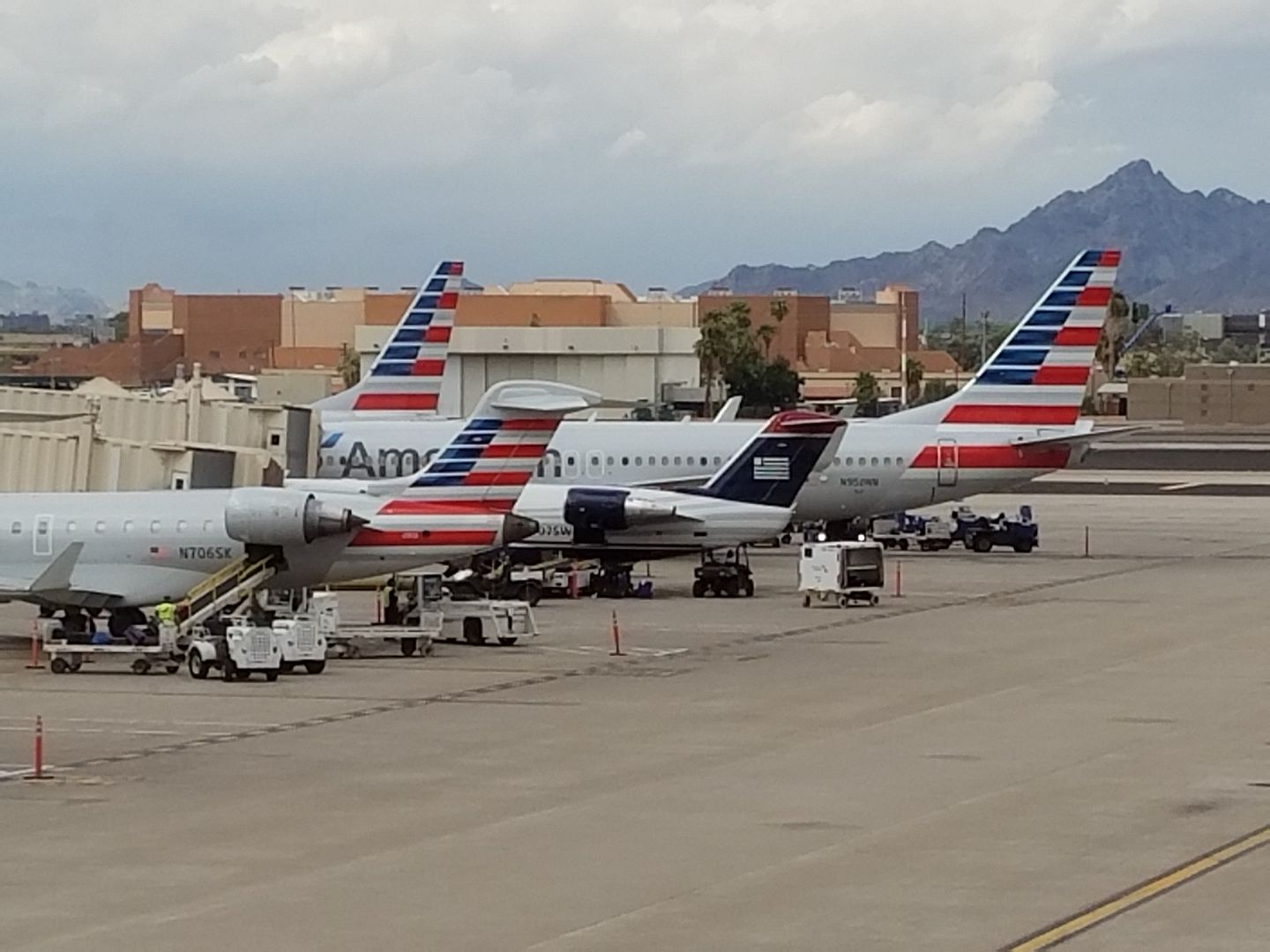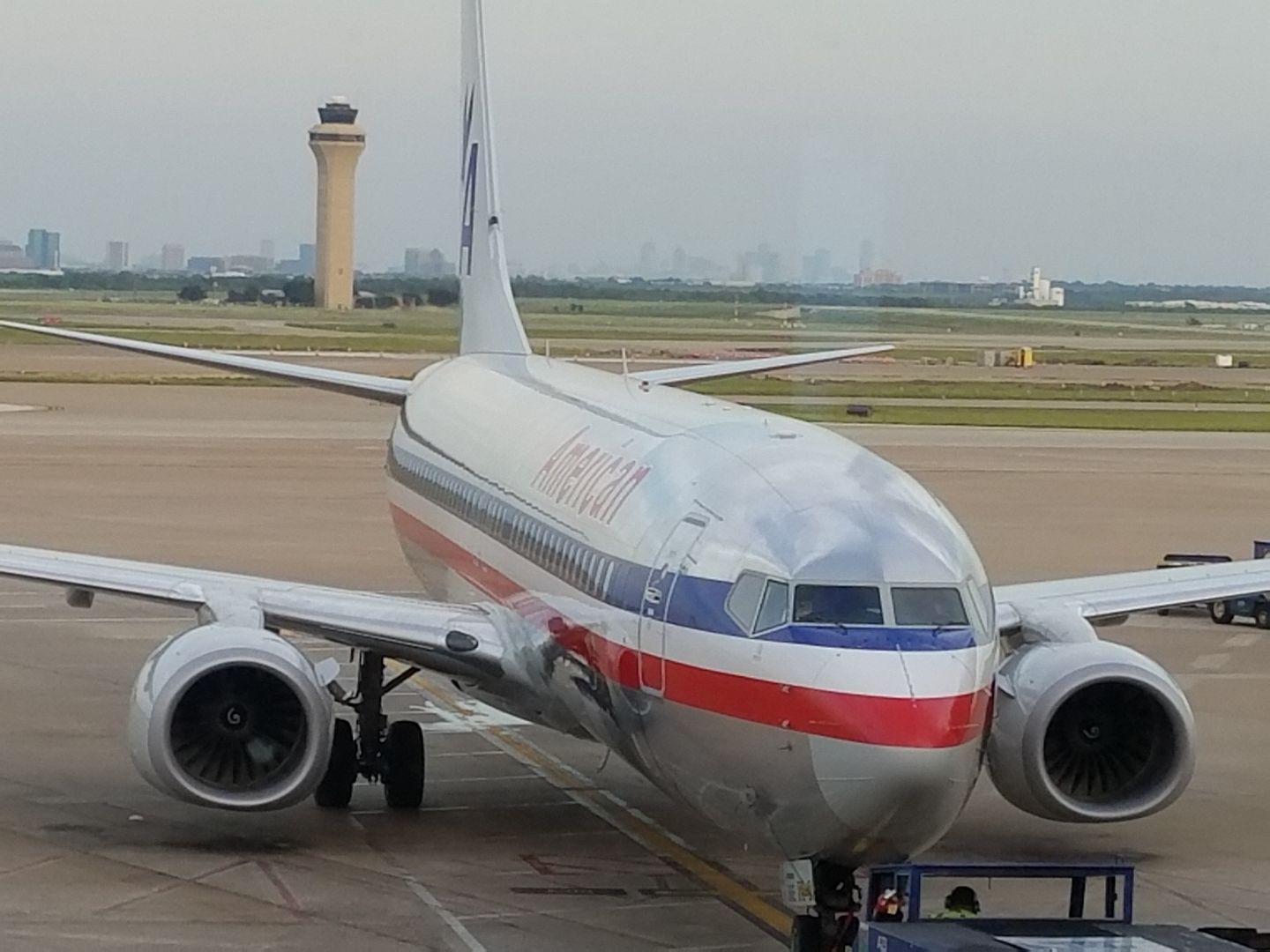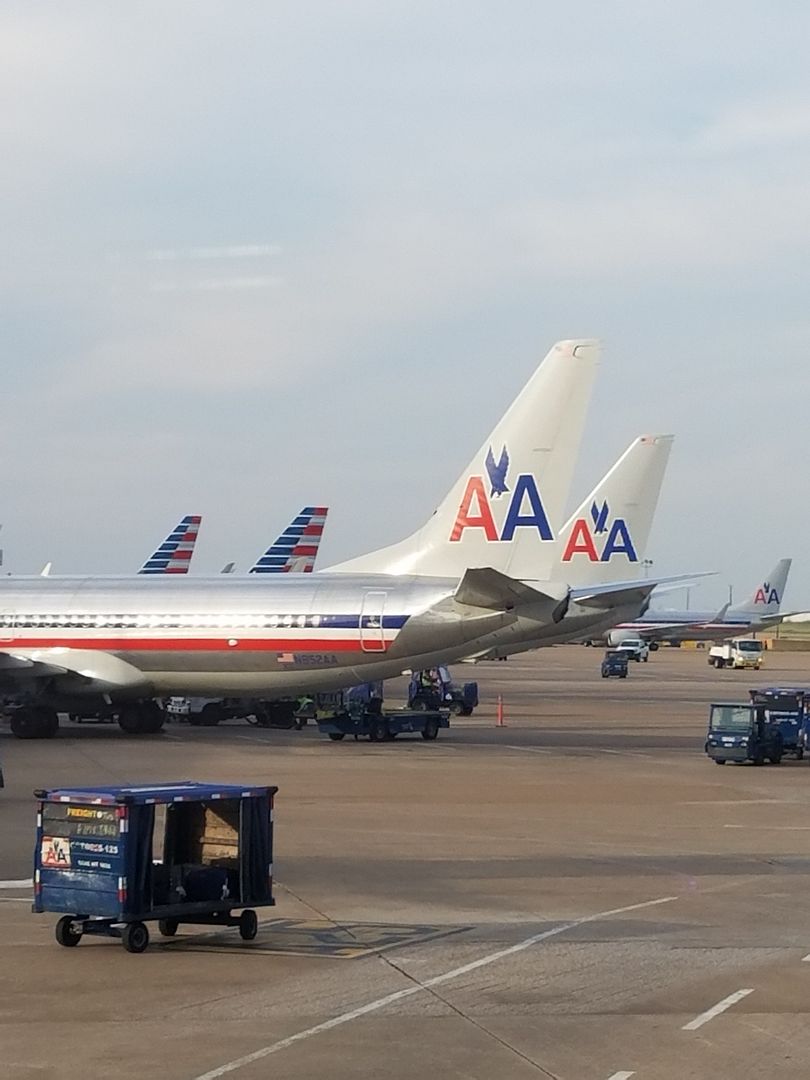ProPublica came out with a piece this week on the American-US Airways merger, airline consolidation in general, that suggests lobbying played an undue influence in the Justice Department’s decision to settle and stop blocking consolidation — the upshot being “you’re paying for it.”
I’ve gotten about two dozen emails and tweets about it, and I’ve responded with some thoughts, but given the volume of interest the piece and some concerns about make sense to share more broadly.
I’ll start by saying I wish the US Airways takeover of American hadn’t happened. But mood affiliation isn’t a determinant of the advisability of legal action by the Department of Justice.

While I might wish there had been a way to ‘wave a wand’ and stop the merger, and so it’s tempting to ascribe bad motives to how it happened, the article doesn’t contemplate that the Justice Department’s legal case was simply not that strong. However, here’s how the piece frames the merger ultimately being permitted:
The Justice Department’s abrupt reversal came after the airlines tapped former Obama administration officials and other well-connected Democrats to launch an intense lobbying campaign, the full extent of which has never been reported.
They used their pull in the administration, including at the White House, and with a high-level friend at the Justice Department, going over the heads of staff prosecutors. And just days after the suit was announced, the airlines turned to Chicago Mayor Rahm Emanuel, Obama’s first White House chief of staff, to help push back against the Justice Department.
There was a tremendous amount of lobbying for the merger. That’s going to be true in any highly regulated industry (despite ‘deregulation’ all the government really got out of the business of was determining schedules and pricing, governments still own nearly all US commercial airports, regulate safety and marketing practices, and directly manage both airport security and air traffic control). And it’s especially true when the stakes are high.

It’s also true that the major US airlines have a strangehold on the House Transportation Committee. Congressman Shuster (R-Conquistadores del Cielo) seems to want to give the airlines whatever they wish. Consumer choices, convenience, and competition-lowering fares don’t appear to factor.
And they’ve got regulatory capture at DOT (which improperly ignores consumer complaints) as it is — which matters since the Supreme Court has nearly eliminated the ability to sue so your only avenue of redress is the DOT.
But the merger, and DOJ’s decision to drop suit, wasn’t simply a story of a corporation buying off politicians. The piece gives little attention to the way in which labor supported the deal (it mentions flight attendants, but US Airways unionized work groups got big raises out of the merger).

More importantly though the DOJ legal case wasn’t that strong. Often the substantive legal position doesn’t matter, a DOJ lawsuit can kill a merger simply by delaying it. But American succeeded in getting an expedited trial so DOJ lost its leverage stemming from delays.
And the substance of the case was weak. It’s worth remembering that:
- Though economic analysis suggested the American-US Airways merger would increase market concentration, in most markets they wouldn’t be the dominant player. If anything the increased size of the airline would make them a stronger competitor against Delta, United, and Southwest who would be larger.
- The DOJ court filings talked about connecting routes like Fresno-Indianapolis, Charlotte-Durango, and Hilo – Miami — extremely thin routes which still have multiple carrier options. And if American pulled out of markets, or raised price aggressively, that would have created a profit-making opportunity for United, Delta, Southwest, Alaska, Virgin American, Frontier, Spirit, Hawaiian, and Allegiant.
- American did become the largest US airline, indeed the world’s largest airline. But for how long? Delta already appears to be growing larger than American by revenue and Southwest is larger by domestic passengers carried.
- Airfares have fallen since the merger, so in fact American really doesn’t seem to have had market power.

The Justice Department didn’t get a whole lot when it settled with American.
- It held the airline to the pre-existing US Airways size at Washington National airport, something that seemed obvious as a requirement from the start. (When US Airways was smaller at National, and attempted to merge with United in 2000, they prepackaged the plan with a spinoff of much of the operation there into a new airline headed by BET cable channel founder Robert Johnson.) As expected, the settlement meant small cities losing service.
- It made American divest itself of gates at Dallas-Love Field which it wasn’t using anyway, setting off musical chairs at the airport that doesn’t actually increase competition.
- It made American give up 17 slots pairs at New York LaGuardia, maintain its hubs for 3 years, and give up 2 gates and related facilities at each of Boston, Chicago O’Hare, Dallas Love Field, LAX, and Miami. Some smaller airports received guarantees of continued service.
The claims in the piece that the merger has meant the end of competition are weak. They suggest that:
- Airline fees are rising, but that’s a continuation of a trend that started pre-merger and fares are down even inclusive of fees (it’s the decline in passenger revenue per available seat mile, which includes fees, which has depressed airline stock prices).
- “Advantage Fares” — a US Airways-initiated pricing strategy to offer discounts on connecting routes — have ended because of the merger, but that’s just wrong. American stopped filing these cheaper fares for all of three months and the article is simply mistaken that these fares are gone. Analysts complain regularly that the airline prices close-in ticket purchases involving connections lower than nonstop flights.
Surpisingly for an article that claims to care about airline competition, it doesn’t even address the ways in which the government makes competition illegal. Rather than making risky legal arguments against mergers, the government could change laws and allow competition.
- Delta, United, and American want to limit flights and low fares from major Gulf airlines.

Emirates A380 First Class Shower - United lobbies to keep competition for its Washington Dulles hub illegal.

Washington Dulles - Dallas Love Field is only constrained and dominated by Southwest Airlines because the government reduced the number of gates there in order to give them near-monopoly.
- Experienced airline competitors from around the world aren’t permitted to fly passengers between US cities, competing against the big incumbent airlines.
The easiest way to get more competition is to eliminate laws that forbid airlines from competing, like restrictions on foreign ownership of US airlines. Let Ryanair and Singapore Airlines operate in the US domestic market and compete against United and Delta.

Singapore Airlines Boeing 777-300ER
Free the planes, make competition legal. That’s where the focus should be.


Donald Trump can fix it!
Why fly a crappy AA 777-300 when you can fly Emirates first class with a shower onboard and private suites? I hope the Gulf States get more routes in and out of the U.S adding even more competition for the lame U.S. carriers.
Next you’ll say that the DOJ didn’t have a strong case with the At&t merger and T-Mobile..
The DOJ didn’t waste all of those resources just to get a bad settlement, which they could have gotten without the lawsuit. If they came out and said this is what we want to allow the deal it would have happened.
Someone pressured someone to drop this and it wasn’t because they didn’t have a strong case.
@Scott – DOJ would have gotten a HUGE settlement, but American managed to get an expedited trial so they lost their leverage. DOJ had opposed that motion. But the case was weak, as most reasonably well-informed judgments at the time suggested.
Anti-regulatory bias — inclusive of even anti-consumer protection bias — has a home at the AEI, right amigo?
Eliminating regulation — a favorite objective of my friends from the American Enterprise Institute — doesn’t always work to make a market more competitive.
Not sure lifting restrictions on foreign ownership of US airlines is wise given that US carriers revert to military use in time of war. I flew on Delta charters to the gulf for deployments while in active duty in the Army.
I’m actually not sure the fares going down have too much to do with competition. IMO it had more to do with the ultra low fuel prices that the airlines have been enjoying for the past few years.
Gary: I disagree with your antitrust analysis. As an antitrust attorney who practiced in the field for 38 years (1973-2011), I was and am convinced that the Obama Administration caved on the case.
As I wrote when the merger was still live, the DOJ case was strong. The market against which the merger was to be analyzed is not overall competition in the U.S. airspace. The law, as stated by the U.S. Court of Appeals for the Sixth Circuit in the Spirit v. Northwest case (Spirit Airlines, Inc. v. Northwest Airlines, Inc., 431 F.3d 975 (6th. Cir. 2005)) is that each city-pair is a separate market against which the market power of the merger must be judged. If the merger would create a monopoly (defined as 50% market share or more) in ANY city-pair, DOJ should have fashioned a remedy that alleviated the restraint with respect to that market. DOJ’s complaint alleged these effects in over 130 city-pairs. It abdicated its responsibility to determine the effects on each separate city-pair affected by the merger, as alleged in its complaint.
DOJ turned turtle in the face of political pressure. As a former FTC staffer, and knowing many good and competent DOJ staffers, I find it entirely credible what ProPublica said about the staff position and reaction.
@Donna that’s a US subsidy program airlines can opt into. And foreign ownership wouldn’t change that.
@GUWonder I haven’t even been to AEI’s annual dinner in 15 years… But the regulations I’m talking specifically about here are ones that make competition illegal. Surely you’d agree those cronyist regs that protect US airlines from competition are a bad idea.
You would have to have been a moron not to heavily lobby the DOJ to approve this merger. Left to their own devices, they seem to be fools. Heck, they’re currently giving Alaska and Virgin America a hard time on their merger. There can’t be 10 other non-socialist people in the world who think that merger presents real anti-trust issues.
It’s also worth noting that the US-AA merger was approved after the DL-NW and UA-CO mergers. It would have been outrageous not to let US-AA merge after their competitors had merged and bulked up.
We now have 4 very large USA domestic airlines, with plenty of smaller competitors. Unless you think we’d really be better off with weak, undercapitalized airlines, it’s very hard to see how America, and Americans, have been harmed by these mergers. To the contrary, they seem like a win-win for just about everyone (except, perhaps, folks who like to collect even more frequent flyer credit card bonuses).
The horse had bolted after the DL-NW and UA-CO mergers. There was no way they could have denied US-AA after allowing the other 2.
Gary,
Like always, a very fine article, thank you. You are excellent blogger. Wish most journalist had your attention to veracity. I am not pandering to you. But, I hope you don’t mind me highlighting one point, a small bit of editorializing with your statement, “despite ‘deregulation’ all the government really got out of the business of was determining schedules and pricing, governments still own nearly all US commercial airports, regulate safety and marketing practices, and directly manage both airport security and air traffic control”. Do you mean that the port authority oh NY/NJ coordinates its interest with the federal government?. If not, stop feeding the crazy right. The “government” (a/k/a Port Authority operated LGA b4 and after deregulation) and federal deregulation was by-and-large authentic. As I am flying to London in a few weeks, nonstop, for $300.
Spot-on Gary! Last paragraph sums it all: just get the government out of the equation and the market will sort things out.
As far as I am concerned, the decision to merge two companies is something that ought to be left completely to their shareholders. The real problem is not allowing further competition.
@retired lawyer:
I traded M&A for 18 years and am very familiar with precedent. I made my living betting on and against such deals. I would have to agree with you.
I’m amazed they were allowed to merge, but I don’t recall the government (DOJ or FTC) caving in any other case . Maybe you do.
AT&T paid a 4.5 billion fee when their deal was opposed, and there have to be great political connections there.
Staples didn’t learn their lesson the first time they lost. They had to try, and eventually lose all over again.
I can’t recall a merger decision being politicized, but the EU Competition Commission has different standards and scuttled GE/ Honeywell.
@iahphx:You stated:”It would have been outrageous not to let US-AA merge after their competitors had merged and bulked up.”The you let them merge so you have to let us merge” argument is not how antitrust law works. Usually, it’s the opposite.
Oh, well, it doesn’t happen often, but Justice can always go back and claim the airlines are anti-competitive now. HSR clearance is not a guarantee . But, “Unscrambling the egg” as one judge put it, is not very easy
@Ned I wrote ‘governments’ plural not suggesting all government involvement is federal. I’m simply pointing out that government is heavily involved in commercial aviation, airlines are more regulated than most businesses despite the popular idea that they have been ‘deregulated’. and one area of heavy regulation is government protection of airlines against competition.
I, too wish this merger didn’t occur, but at the time, I didn’t see how the DOJ, which had allowed the CO/UA and DL/NW mergers, could reasonably decide that this merger was illegal while the other two were fine.
Gary
Were you bought off too?
We know labor unions coerced their congressmen to lean on DOJ
It seems pretty simple. There is less competition in the airline industry as a result of consolidation over the last 10 years and consumers are indeed paying the price for it. Does anyone seriously believe these mergers have had a net positive effect on competition? (There is one exception and that is the Alaska – Virgin America merger which hopefully strengthens Alaska enough to withstand Delta’s attempts to drive it out of business.)
Record profits in a tepid economy being Exhibit A, and the lock-step destruction of frequent-flyer programs being exhibit B. The fall in fuel prices may partially explain why fares have come down somewhat and profits have risen although hedging, if it is an effective strategy as some airlines claim, should diminish the effect of fuel prices on fares and profits. Record profits may be primarily due to capacity discipline rather than fuel costs. With only three or four players (depending on how one defines the market) it becomes much easier to maintain very high load factors and avoid the empty seats that cause airlines to reduce prices.
These record profits come when the economy is going through a weak but sustained recovery. That is not a time when one would expect record profits and full capacity in a competitive industry. The way the major international carriers have followed each other in making complex and nearly identical changes in ff programs is another major anti-competitive development that consumers are paying the price for.
A USAirways route that I travelled once to twice a month — GSP/DCA — has had the non-stop flights drop from 3 to 4/day on Sunday to ONE/day. And the airfare has increased 50-100%. As a consumer, I have never seen a merger of any corporation bring me better choices and better prices.